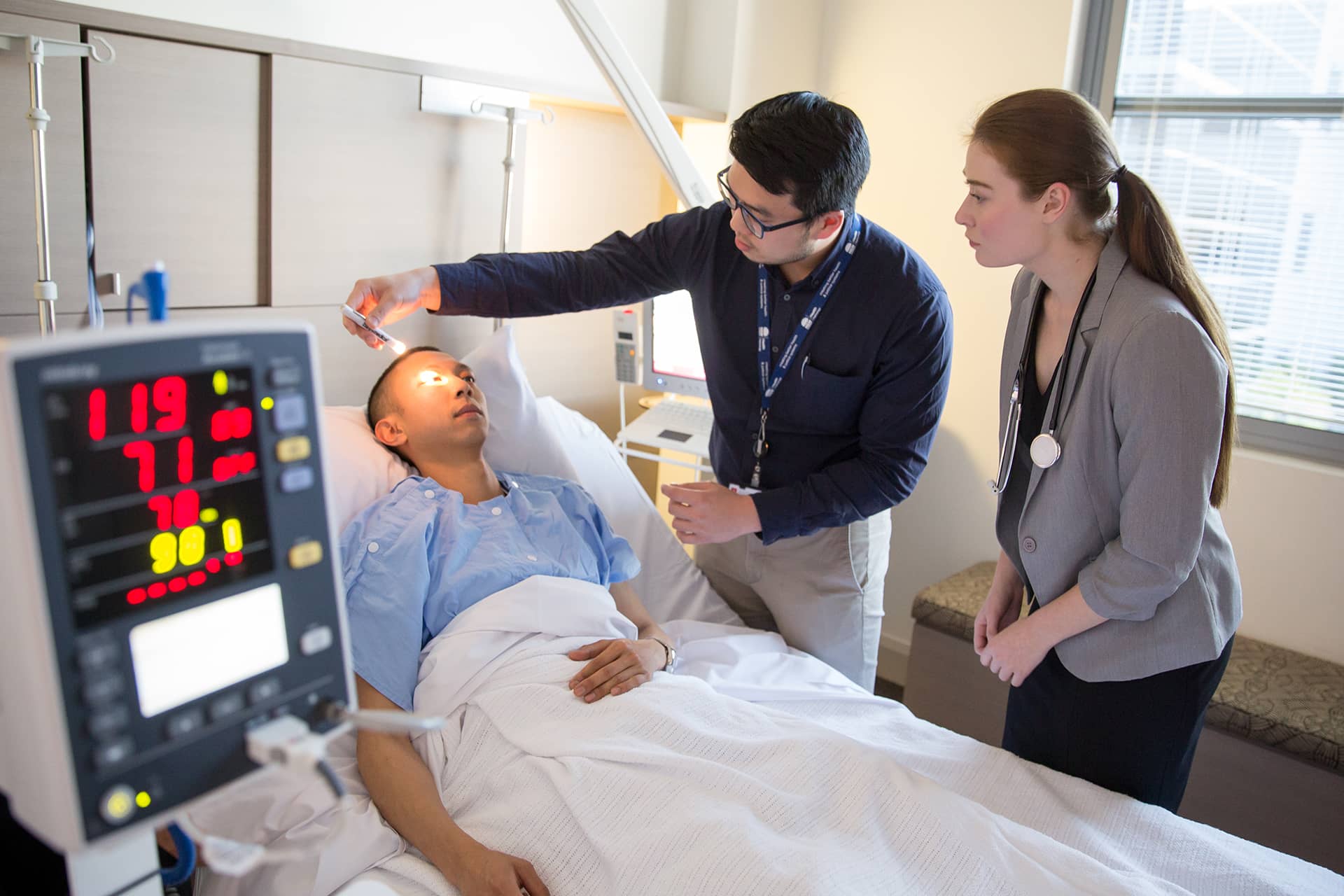
Why You Should Consider Small Medical Schools in Australia
A recent Reddit post described a scenario you might have run into as a medical school applicant. To summarize, the commenter joked about attending several medical school interviews, all of which emphasized their unique “close-knit environment.”
This begs the question, What’s so great about attending a medical school with a close-knit environment?
What is meant by close-knit? And if this is important to you, how do you know if a medical school has these qualities?
Here we’ll unpack these questions, showcase an Australian medical school that does have a close-knit environment and provide some evidence to back-up this claim.

The Close-Knit Advantage
When we talk about a medical school having a close-knit environment, what do we mean? Think professors that know you by name, a faculty that does well-being checks and peers that are rooting for you throughout your studies. These are medical schools that have intentionally woven qualities like community and support into the fabric of their program.
A close-knit environment can be an important factor when choosing a medical school for many reasons.
For an international medical student moving away from family and friends, or an introvert who’s uncomfortable making connections, a close-knit community encourages new friendships and support systems to form naturally.
Consider the positive effect a “we’re-in this-together” atmosphere can have during challenging times. Having peers that root for each other along the way and band together to prep for that upcoming exam can be a positive force towards your well-being and progression as a medical student.
What To Look For
So, how do you pinpoint which medical programs truly focus on community and support? These are not qualities represented in a typical ranking system.
Here, we’ve outlined three key references you can use to help you narrow things down: small cohort sizes, high student satisfaction scores, and positive student reviews—together, demonstrating a close, supportive environment.
#1 Small Cohort Size
A small cohort size can be a good indicator for a close-knit medical school. As you can imagine, it’s going to be easier to get to know everyone and create a supportive network with a smaller student body.
#2 QILT Rankings
Quality Indicators for Learning and Teaching (QILT) is an Australian Government initiative that uses surveys to gain insights into areas such as student experience, across Australian universities.
Their ComparED tool is a great way to compare programs statistics from QILT Student Experience Surveys. Here you can get a sense for programs that rank high in areas like positive overall experience, interactions with other students, or support and services. All of which lend to a close-knit community.
#3 Student Feedback
Read through students reviews when available to get first-hand accounts of a student experience. Student feedback speaks volumes—but can be overlooked when in competition with big-name universities.
About the Macquarie University Doctor of Medicine
Below we’re highlighting Macquarie University’s Doctor of Medicine program as a great example of a close-knit medical program. They’ve got a small cohort, glowing results from the QILT Student Experience Survey results, and student reviews that praise their supportive community.
Cohort Size
Although cohort sizes can change from year to year, Macquarie University’s Doctor of Medicine aims for to enrol about 60 students per year (approximately 20 of those are international seats).
QILT Student Experience Survey Scores that Shine
Macquarie University’s Doctor of Medicine boasts some of the highest Student Experience Survey scores across all the MDs covered in this survey and far surpasses the National Average in most categories.
Positive overall experience score: 88% (National Average 71.2%)
Positive about their skills development: 95.8% (National Average 81.7%)
Rated teaching practices positively: 91.6% (National Average 72%)
Rated support and services positively: 78.1% (National Average 63.3%)
Positive about their interactions with other students: 83.3% (National Average 64.4%)
Macquarie MD Student Reviews
These reviews from our annual OzTREKK “Commenced Students” survey echo what the statistics above indicate about the Macquarie Doctor of Medicine degree.
“Small classes allow great instructor interactions, hands-on experiences and better connections with classmates.”
“I love the small cohort component the most as we build stronger connections to our peers which helps build a supportive system in a difficult program.”
“It’s rewarding to have chosen a program with a smaller cohort where I can be known by my peers and tutors. The program itself is innovative and values global health, clinical competence and collaboration. Students even got to have small group meetings with the university’s Vice Chancellor who formerly practiced as a paediatric geneticist, to ask questions and hear about his career, wisdom, and the design of the program!”
If you feel that a supportive, close-knit community is your key to thriving as a medical student, now you’ve got an approach to verify the real deal.
If you’re curious about other programs share the same ideals, please reach out. We’re happy to share resources and programs details to help you compare your options.
Macquarie University Doctor of Medicine at a Glance
The Macquarie University Doctor of Medicine is a new 4-year program embedded within an established university that has a culture of transformative learning, and within MQ Health—an academic health sciences centre that integrates patient-centred clinical care, teaching and research.
Macquarie aims to prepare their medical graduates for the predicted environments in which they will practice as future leaders in health care. A Macquarie graduate is patient- and safety-focused, culturally responsive, globally aware and equipped to work within increasingly digital health systems.
Program: Doctor of Medicine (MD)
Location: North Ryde, New South Wales
Semester intake: February
Duration: 4 years
Application deadline: Applications are assessed in rounds on a rolling-admission basis (first come, first served)—the earlier you apply the better.
Start your application to Macquarie Medicine!
*
Find out more about the Macquarie MD program. If you have any questions about medical schools in Australia, please contact OzTREKK’s Medicine Team at medicine@oztrekk.com.



































Ask A Question
Ask us about your program of interest, or if you have a question about our services.
CONTACT US TODAY